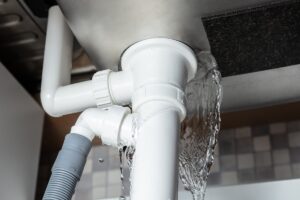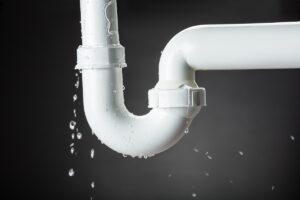Burst Pipe Damage Repair: Expert Solutions to Minimize Water Damage
Burst pipes are unexpected disasters that can wreak havoc on homes and businesses, causing extensive water damage and financial losses. When a pipe bursts, the rush of water can quickly turn a space into a watery mess, damaging furniture, electronics, and important documents. This article will explore the signs of a busted water pipe, the common causes behind such incidents, and expert solutions to minimize water damage. They understood the proper steps to take when a pipe bursts and learned how to prevent it from happening again, which can make a significant difference in mitigating the impact of such emergencies. Burst pipe damage repair can be handled by water damage experts.

Signs of a Busted Water Pipe
Homeowners and property managers must promptly identify busted water pipes, which can cause water damage, mold growth, and structural problems if left unattended. Some common signs of a busted water pipe include:
Water Leaks
Visible water leaks or pooling water in areas where it shouldn’t be, such as ceilings, walls, or floors, can indicate a pipe has burst.
Reduced Water Pressure
A sudden decrease in water pressure in faucets or showerheads could signal a leak in the pipes.
Discolored Water
Water from brown or rusty taps may indicate pipe corrosion and potential rupture.
Unusual Sounds
Strange noises, like hissing, banging, or rattling, coming from the pipes could indicate water escaping from a crack or hole.
Water Meter Activity
If the water meter continues to run even when no water is being used in the house, it suggests a hidden leak, possibly from a busted pipe.
Mold and Mildew
The mold or mildew in usually dry areas can signify prolonged water exposure, often caused by hidden pipe leaks.
Unexplained Increase in Water Bills
A sudden and unexplained spike in water bills without a corresponding increase in usage may point to a hidden leak.
Common Causes of Burst Pipes
Understanding the causes of burst pipes can help homeowners and business owners take preventive measures to avoid such incidents. Some of the most common reasons for pipe bursts include freezing temperatures, especially during winter months, corrosion due to aging pipes, excessive water pressure, and invasive tree roots that damage underground pipes. Identifying the root cause is essential in implementing long-term solutions and preventing future pipe bursts. Some common causes of burst pipes include:
Freezing Temperatures
Water inside pipes can freeze in freezing weather, causing the lines to expand and potentially burst. This is a common issue in colder climates during winter.
Corrosion
Over time, pipes can corrode due to chemical reactions with water, weakening the pipe material and causing corrosive water problems. Corroded pipes are more prone to ruptures.
High Water Pressure
Excessively high water pressure can strain pipes, especially older or weakened ones, making them susceptible to bursting.
Physical Damage
Pipes can be damaged by accidental impact, whether from construction activities, gardening, or other forms of physical pressure, leading to leaks or bursts.
Clogs
Accumulating debris, grease, or foreign objects inside pipes can create blockages, causing pressure to build up and potentially leading to pipe bursts.
Aging Pipes
Older pipes made from materials like galvanized steel or cast iron are more prone to deterioration and bursting, especially if they need to be replaced or upgraded.
Tree Roots
Tree roots seeking water sources can infiltrate underground pipes, causing damage, blockages, and, ultimately, pipe bursts.

What to Do When a Pipe Bursts
Here is a list of things to do when a pipe bursts:
1. Shut Off the Water
When a burst pipe is detected, the first and most crucial step is to shut off the water supply to prevent further water flow. This action helps minimize water damage and allows you to assess the situation calmly.
2. Shutting Off Electricity and Gas Supply
In addition to turning off the water, it’s essential to shut off the electricity and gas supply to ensure safety. Water and electricity are dangerous, and gas leaks can lead to a potential explosion. Cutting off these utilities immediately reduces the risk of accidents and allows professionals to work safely on repairs.
3. Removing Waterlogged Items and Salvaging Belongings
Remove waterlogged items from the affected area once the immediate safety measures are in place. Salvaging belongings promptly can prevent further damage and increase the chances of restoring valuable possessions.
4. For Quick Assistance, Get in Touch with Skilled Plumbers and Restoration Services
It’s critical to contact licensed plumbers and restoration companies immediately for help after completing the necessary safety precautions and preserving personal property. Skilled plumbers can determine the burst’s origin, evaluate the damage, and offer professional repair services. Restoration services can help dry out the affected area, prevent mold growth, and restore the property to its pre-damage condition.
5. Prevent It from Happening Again
Once the burst pipe has been repaired, it’s essential to take preventive measures to avoid similar incidents in the future. This could entail fixing problems like excessive water pressure, routine maintenance inspections, and insulating pipes during the winter. Businesses and homeowners can relax knowing that taking preventative action significantly reduces the likelihood of burst pipes.
6. Safety Measures: Turning Off the Gas and Electricity Supply
The need for safety precautions must be emphasized once more. Ensure the gas and electricity supplies are off before starting any repairs or inspections to reduce the possibility of mishaps. In any situation, the first focus should always be safety.
7. Cutting Off the Main Water Supply to Prevent Additional Water Leakage
The best technique to stop the water from the ruptured pipe from flowing is to turn off the main water supply. You can control the situation and lessen the damage by preventing more water from entering the area. It is essential to know where your property’s main water shut-off valve is located to react quickly to emergencies.
8. Call the Insurance Company
Contact Your Insurance Provider When your home is flooded, filing an insurance claim might not be your immediate concern. Still, it’s crucial to inform your homeowner’s insurance company immediately.
Flood insurance might not cover Natural events like hurricanes, but damages caused by sewage backup or plumbing problems will likely be covered. It’s essential to document the damage thoroughly—the insurance company will send an adjuster for a detailed inspection—and initiate your claim.
Calling your insurance company promptly is vital because they can provide valuable recommendations for local mold remediation specialists or water damage repair professionals, assisting you in addressing the situation effectively.
Conclusion
Take care of a burst pipe as soon as possible to reduce damage. Recognizing symptoms, comprehending causes, and acting quickly to shut off utilities and contact experts is critical. Homeowners can avoid expensive repairs by taking preventive steps like insulation and routine maintenance to stop similar accidents from happening again to your home. After a burst pipe emergency, the best way to reduce water damage and ensure a speedy recovery is to act quickly and seek professional assistance.
